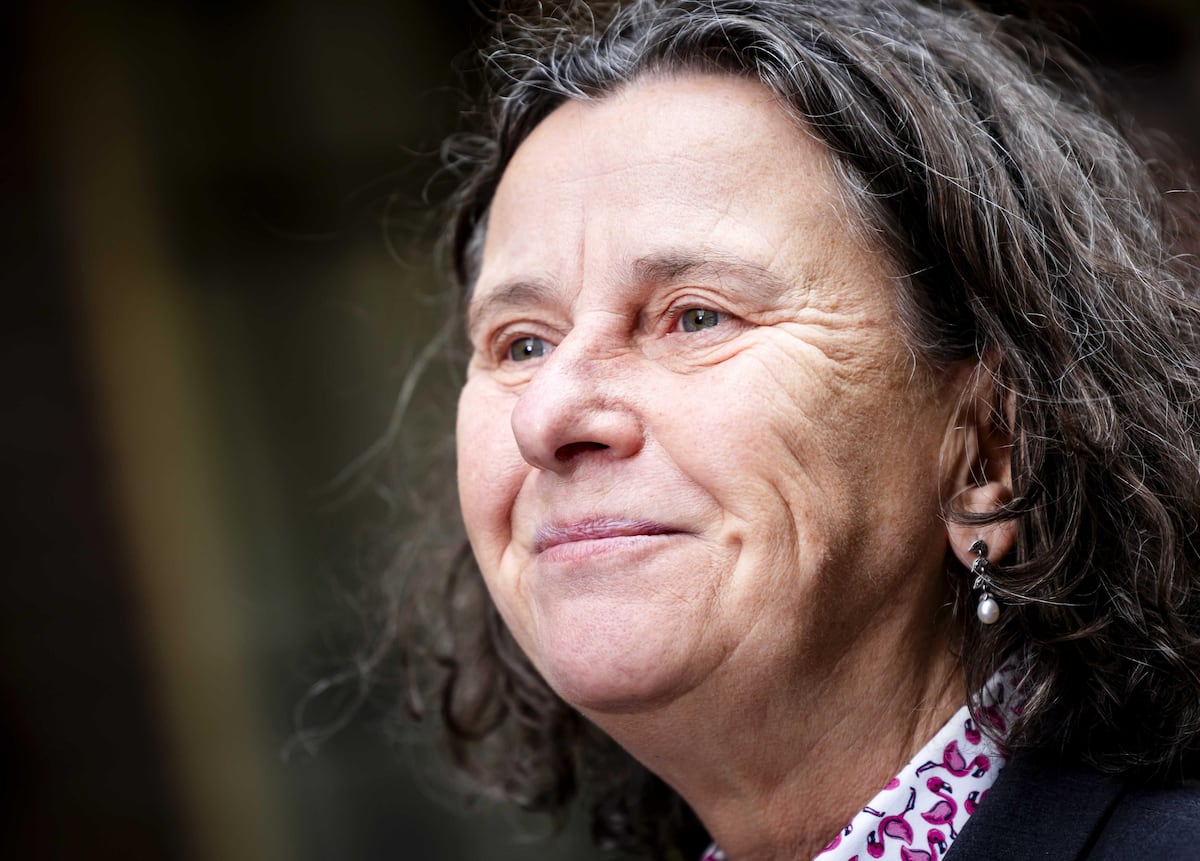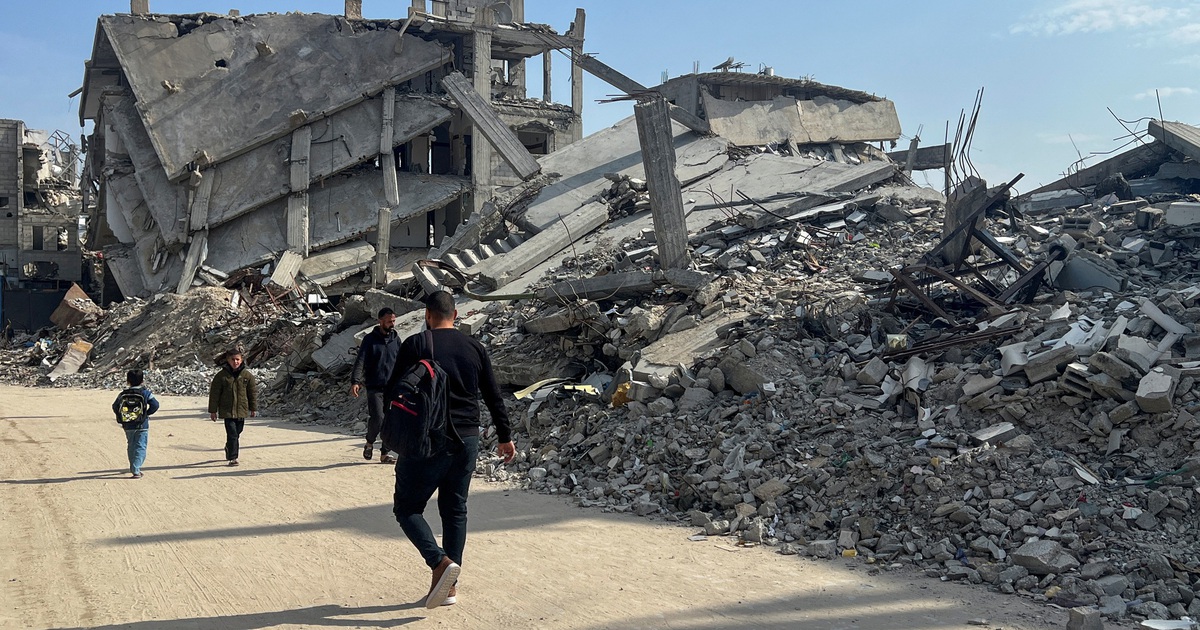Marjolein Faber (64 years old) is called to impose a tough hand against immigration in the Netherlands. As Minister of Asylum and Migration, she took office on July 2 for the Party for Freedom (PVV), the extreme right led by Geert Wilders, the majority in the new Executive. A member of parliament and previously a senator, she has had to distance herself from her statements about the threat of the supposed replacement of the native population by immigrants, a racist conspiracy theory that she has aired from her seat, and which she now qualifies. “It is one thing to be in the opposition and another to head a ministry and have to comply with the laws,” she justifies. However, according to the government framework agreement, it is up to her to “apply the strictest admission regime in terms of asylum in history,” in the words of Wilders.
The Dutch government has several new features. Prime Minister Dick Schoof, who headed the secret services and was coordinator of the fight against terrorism, has no political experience. Three of the four parties in the right-wing coalition are also new to power at the national level. They are the Citizens’ Movement – the voice of the agricultural sector -, the New Social Contract – headed by a former Christian Democrat – and the PVV itself. They owe their electoral success in large part to public dissatisfaction with the policies pursued during the 14 years of consecutive governments led by the liberal Mark Rutte – the new Secretary General of NATO. But even in a context like that of the new government, halfway between a break and a political experiment, Marjolein Faber stands out for her toughness.
She has been a member of the PVV since 2023, and was previously a senator for the same party for a decade and head of the parliamentary group from 2014. A laboratory assistant and IT specialist, married with two children, her family owned a butcher’s shop. Politics were always discussed at home, she explained, and she joined the PVV because she thought Wilders was “going against the current” and wanted to “follow him in his endeavour”. She took with her home “contact with people, because nowhere is there as much talk as in a butcher’s shop”, she said. It is a skill that she will have to apply thoroughly from now on because the European Commission has already warned the Netherlands that it cannot unilaterally declare an asylum crisis, as proposed by the government pact. Nor can it suspend the processing of asylum applications for two years, since this measure would go against EU law.
Before facing reality, Faber claimed in 2020 that the then Minister for Foreign Trade and Development, the left-liberal Sigrid Kaag, was “pumping” hundreds of millions “into the United Nations network.” That money, he said, would be spent on “deploying an agenda of anti-Semitism, terrorism and repopulation.” Delivered in the Senate, that speech immediately earned him criticism from the then Prime Minister, the liberal Mark Rutte. A graduate in history, he recalled that repopulation was a conspiratorial term rooted in Nazi ideology, which assumes the existence of a political elite that deliberately introduces immigrants into a country to replace the white native population. At the time, Faber did not respond, but the phrase has come back with the force of a boomerang.
Summoned before her inauguration by the parliamentary commission that interviewed the Council of Ministers and the Secretaries of State, Faber said that she had “completely distanced herself” from her words. She understood that saying something like that implies “a deliberate plan, and that is incorrect,” because of its “terrible connotation with the past and Nazism.” From now on she will speak of “worrying demographic developments.”
Against a mayor of Moroccan origin
Knowing what’s happening outside means understanding what’s going to happen inside, so don’t miss anything.
KEEP READING
Asked by MPs whether this was saying the same thing in another way, she did not clarify. In 2017, she demonstrated in the city of Arnhem against the appointment of the Social Democrat Ahmed Marcouch as mayor. The banner she was holding alongside Geert Wilders read: “No to Arnhemistan. We are losing our country.” Marcouch is of Moroccan origin and is seeking his second term. In 2023, Faber called the councillors of her home town “traitors”, “hypocrites” and “Pharisees” on social media for considering opening an asylum seeker centre.
Faber has not yet revealed the main lines of her ministry, among other things because the government will have to implement the agreement reached by the four parties in the coalition. However, the parliamentary committee also asked her about a tweet published in 2019 about a stabbing that occurred in Groningen, in the north of the Netherlands. She wrote that the author had a “North African appearance”, a claim denied by witnesses and later by the prosecution. “My tweet is correct,” she maintained until her interview last Monday. “My tweet was not correct,” she acknowledged upon leaving the meeting.
For Wilders’ PVV, the Ministry of Asylum and Migration is essential, as is the Ministry of Health, which they also hold, because they reflect the greatest concerns of their electorate. The coalition agreement provides for a request to the European Commission not to be involved in asylum and migration policy. According to the Central Statistical Office, more than 38,000 people submitted a first application for asylum in the Netherlands in 2023. This is 8% more than the previous year, and most of them came from Syria, followed by Turkey, Eritrea and Yemen. Three quarters were men, and the majority were under 35 years old; almost three in 10 applicants were under 18 years old. In 2023, just over 10,000 relatives of asylum seekers arrived in the country – 800 fewer than in 2022.
The PVV also wants to curb labour migration, and will have to find a balance in this respect, which previous governments have also failed to achieve. By 2030, there are expected to be around 1.2 million foreign workers active in the Dutch labour market, according to a report by the General Association of Employment Agencies. The debate on their exploitation, and the fact that there is demand for jobs in construction, among others, will once again be on Faber’s table.
Other past controversies have more to do with his integrity. Like when the newspaper NRC In 2015, he revealed that he had paid his son with PVV funds to design a party website. He promised to pay it back. Despite the controversies and the enigma that the new government represents, a report published this June by the consultancy Ipsos I&O indicates that voter confidence rose from 29% to 42%. In particular, voters of the PVV, New Social Contract and BBB are those who most expect an improvement in the situation.
Follow all the international information at Facebook and Xor in our weekly newsletter.










